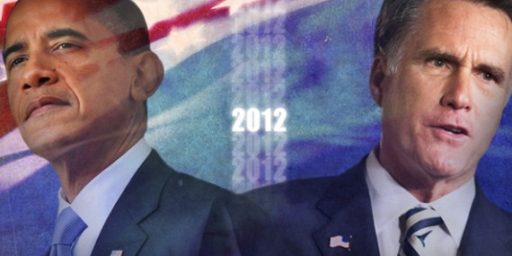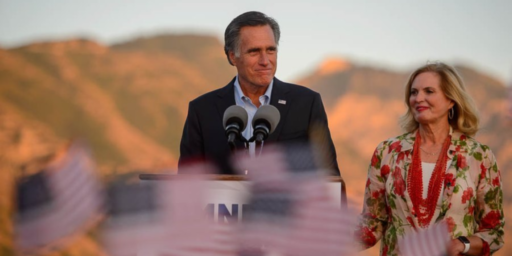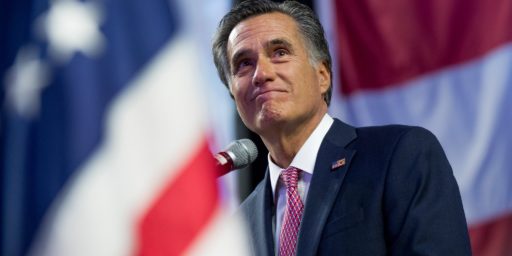I Bet the Florida GOP Feels So Very, Very Chastised
Given the serious media attention that Florida has received over the last week or so, and given that Florida’s primary is going to be discussed as being decisively important for probably most of the month of February, I am betting that the state’s GOP leadership is actually quite pleased that it decided to buck the national leadership in terms of the scheduling of the primary (as well as violating party rules for early states concerning whether the contests can be winner-take-all or not—see here).
The issue of Florida’s delegate allocation and its schedule will be wholly moot by the time convention takes place this summer. More likely than not, Mitt Romney will be the nominee and the issue of Florida will be an asterisk at best (but, ironically, one that will have propelled Romney to said nomination confirming that the Florida GOP was right to ignore the RNC). And even if the unlikely happens (i.e., Romney implodes), Florida’s primary will not be an issue at the RNC’s convention (which will still not redeem the RNC as Florida still will have gotten the attention it wanted).
If one needs a good illustration of the weakness of the parties (and an illustration of how US parties lack a unified “establishment”), one need look no farther than Florida and the issue of the primary schedule.






As the U.s. becomes a one party state, any state that is not one of the first few primaries is just giving up having in say in who will be president.
Image what happens in 2016 when the Democratic Party will have its nominee already decided and three or four states will have decided who will be the Democratic Party nominee and thus, who will be the next president.
Instead of all of the discussions concerning campaign finance funding or popular election of the president, why not reform the primary system who that voters outside of Iowa and New Hampshire will be able to influence who will be the next president.
@superdestroyer: The “one party state” refrain in the comments section of every post has long since gotten stale.
Bless you a thousand times, James.
@James Joyner:
OK, but still, the primary system is still set up to give a couple of states an out sized influence in selecting who is the president.
The idea of popular vote for the president has been mentioned many times in order to force the parties to campaign in states where they currently do not vote.
But shouldn’t the primary ssytem be redone so that voters in the 45 states that have primaries after the winner has become apparent can have some say in who their president will be.
@superdestroyer: Take it up with your party. The party sets the rules for primaries; the feds step in only to assure that each state’s primary is not excluding those who might wish to vote in them and, to an extent, how money is raised and spent.
How about the poor–and few–Republicans in DC? They don’t even get a primary!
As a long-term trend it seems very reasonable to expect the parties to have less and less control over elections and candidates. This might be a change we do not enjoy, however. Would anyone prefer that, for example, Mr Adelson pick our leaders?